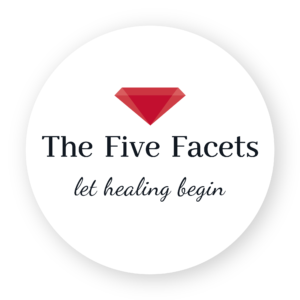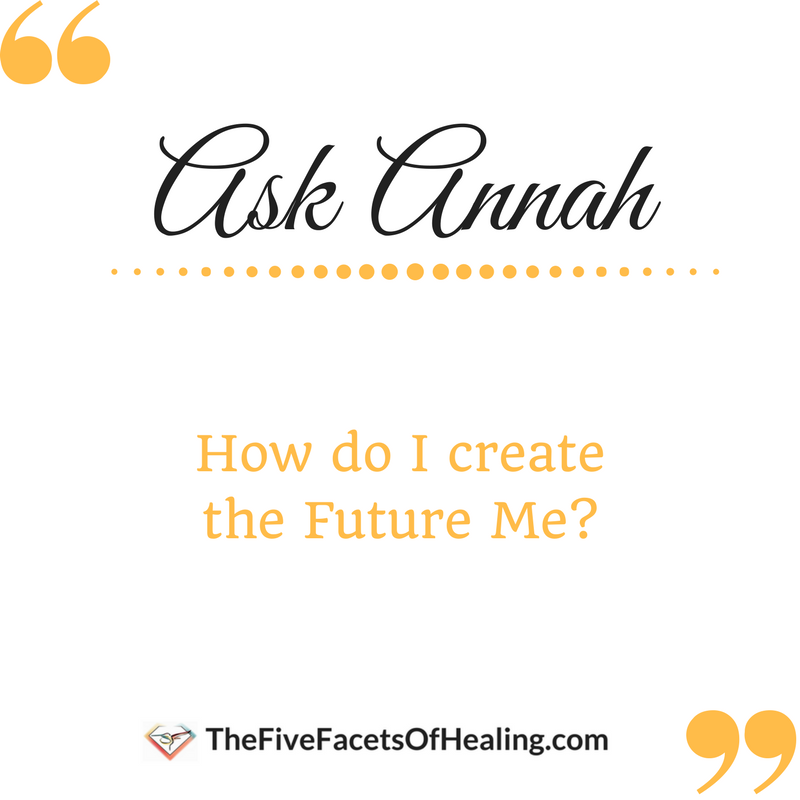Dear Neighbor,
Thank you for this question and your courage to heal your heartaches big and small so you can go on to live your dream life, the one YOU SO TOTALLY DESERVE, by unearthing your Future You.
Understanding that we cannot return to the past and to some “Old Me” can certainly be frustrating. I well remember the angst and sense of failure as I longed to replicate a previous weight loss success, as I longed to feel whole again following a second miscarriage, and how I longed to feel the peace and ease my husband and I had re-established following his first affair but a harmony that I could not seem to duplicate following his second infidelity.
I feel your conflict and your struggle and want you to know that as hard as this journey may seem, you CAN do this. You can find your balance, again.
What I learned is that, since we cannot go back, we must go forward, looking toward to a future, albeit one that is unknown and can bring a chaotic blend of excitement, enthusiasm, exhaustion, and insecurity.
As with most things in life, it is this juxtaposition of feelings, thoughts, and emotions that can make the road moving forward scary and seemingly hard. One of the things I often say is that when you are faced with a dilemma, it can appear looming and large because there are so many moving parts that impact many areas of your life. When you can break it down into bite-sized pieces, it gives you a better sense of direction and assists you in being more focused.
Below are five steps I learned along the way that can make your going a little easier and a little more manageable. Remember to take what works for you and weave it into your already successful strategies, for each of us is different and there are many roads to reach your goal.
Identify your goal.
What is it?
Is it a want or a need?
Getting clear about this is a critical first step and understanding the difference will not only help you connect with what is driving your discomfort, it will help you better prepare to meet your goal.
You know the old adage “The best things in life are worth waiting for?” A want is something you dream about and is often something you think will make your life easier, more enjoyable, more comfortable, or [insert your whatever.] Wants typically evolve from a desire for something different. Though they often come in the form of material things like clothing, cars, homes, and vacations/respites, they also appear as a desire for emotional or spiritual peace and support.
A want is something you can live without out. You imagine it would be nice to add to your days and nights, but it is not a necessity.
A need, on the other hand, has a critical component to it and may necessitate more immediate action. Without it, your ability to survive could be jeopardized. Needs have to do with health, safety, and sustenance like food, water, and shelter. Those needs are often met through unrelated resources, often found in the form of currency or bartering.
Sometimes a want can transition into a need. I had steadily gained weight over a few years and I wanted to drop those additional pounds but didn’t get serious until an extremely stressful situation caused me to pack on an additional twenty-three pounds to the already heaviest weight I had ever been. I had tried several programs that didn’t produce the success I had hoped. Never giving up hope that I would one day find a successful strategy, I eventually enrolled in a medically monitored program.
When blood-work revealed I had developed sudden onset diabetes, my want quickly turned into a need. My attention to the diet became even more important if I were to avoid more serious health conditions. This need forced me to take a hard look at how I was going to be more disciplined in my daily habits relating to food, exercise, and how I was going to manage the stress associated to the environment that had led me to the state I was in.
Honing in on your goal can be hard for many reasons, but mainly because your struggle may likely encompass more than one of your facets and hinge on other things, as in the example where our sustenance needs are often met through some exchange that is only connected by some unrelated means to achieve.
 Identify the facet(s) you want to work on.
Identify the facet(s) you want to work on.
You decide you want to “get healthy,” but what does that mean? Most people think about the physical facet when using this expression. Do you want to lose weight? Gain weight? Or just feel better in general? Which area in your life feels unhealthy? Is it your physical facet? Have you recently had an unexplained weight gain or loss and are feel sluggish? Are you feeling socially disconnected from friends or dealing with a emotionally stressful situation? Are you facing an academic facet conflict where you are you struggling with a need for more knowledge about a particular subject and wondering? Are you struggling with who you are or some aspect of your spiritual facet connected to your own Divine?
List each facet (Academic, Emotional, Physical, Social, Spiritual) and write a description about the conflict you feel in each area, citing the struggles and questions you have AND then make a separate description detailing what you envision for your positive future.
Create your action plan.
Whereas you have little say in how your loss event and grief are going to play out, healing is a choice. YOU get to decide what you want to work on. YOU get to ask the questions that will help you find resolution in your conflicts and YOU get to choose the methods you want to try to help you do that. Though it might feel contrary, YOU ARE EMPOWERED.
Decide which facet/struggle you want to give your attention to first. Are you someone who likes to get the biggest challenge out of the way first? Go for it! Or are you someone who likes warming up with a few easier tasks first?
Once you have decided on a facet and struggle you want to tackle first, then make a list of things you want try to accomplish your goal. Asking yourself these questions will help guide you. What do you already know? What do you need or want to know? What do you want and need to do? What changes might be helpful? What resources are available to you? What additional resources might be helpful? What support system do you have in place? What additional support might help? Where and how can you fill in any gaps?
One of the things I always say is “Sometimes we don’t know what questions to ask because we don’t know what other options are out there.” What can you do or where can you go to learn something new or stimulate questions you might not have thought about before?
One of my mantras is “You cannot make or find time; you must take the time to do what you want and/or need to do.”
Face it, all twenty-four hours of your day are already filled doing something, whether it be working, driving, shopping, playing Candy Crush, eating, or sleeping. Choose which activities you are willing and able to make substitutions for and where necessary, choose ways you can make more efficient use of your time.
Make a list of the activities you need and want to do and schedule them into your days and weeks. Remember to set reasonable timelines and expectations for yourself. If your goal will take months or years to materialize, set short-term goals to help keep you motivated, on track, and most of all encouraged. Rewarding/recognizing your success along the way will help you stay inspired to keep going.
Execute your plan.
Do it.
Do it.
And keep DOING IT.
Learn what you need and want to learn.
Make the changes you chose to make.
Remember that your work and commitment are the real estate in your ultimate success.
Be disciplined and consistent, yet open-minded and flexible.
Do whatever you need to do to accomplish your action plan. Leave notes and set reminders in your paper calendars and your electronic devices.
Enlist others who can help you remain accountable to yourself and your plans.
If you stumble or “fail” one day, go easy on yourself by remembering that it takes countless repetitions to create new and lasting habits. You will often learn what you want and need to do through experiencing what you don’t want to happen…through your perceived “failures.”
Thomas Edison said, “I have not failed. I’ve just found ten-thousand ways that won’t work.”
Know that sometimes outside influences and unexpected circumstances might derail your plans and sometimes what you thought might work, won’t. When those things happen, reset, restructure, be kind to yourself, and begin again.
After-all, your Future You deserves all of those things, don’t you think? Your Future You isn’t a place, but a journey that is filled with wonder, awe, and discovery.

